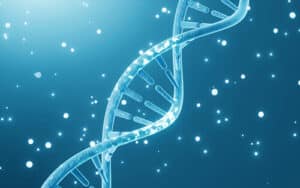Value of DNA Testing in Battles Over Estates in NJ
 DNA testing has played an important role in legal fields as divergent as criminal and family law, incriminating or exonerating defendants involved in illegal activities and determining paternity in child custody cases. However, a lesser-known legal field in which disputes are resolved with DNA testing in New Jersey is probate and estate planning.
DNA testing has played an important role in legal fields as divergent as criminal and family law, incriminating or exonerating defendants involved in illegal activities and determining paternity in child custody cases. However, a lesser-known legal field in which disputes are resolved with DNA testing in New Jersey is probate and estate planning.
Common Scenarios for DNA Testing in Complex Estate Conflicts
Verifying Eligibility to Inherit with DNA Results
Establishing paternity is not only a family law court issue. In probate courts, will contests and inheritance rights depend on biological and adoptive familial relationships when a will, trust, or other testamentary instrument does not name a beneficiary. Thus, DNA testing can verify a child born out of wedlock is eligible to inherit as an heir of a deceased parent.
Invalidating Inheritance Rights with Paternity Testing
Conversely, DNA testing to establish paternity may disinherit an heir. For example, intestacy laws determine who inherits from an estate when a will is invalid or when an individual dies without a will or trust. The deceased’s children and spouse are first in line of succession. However, one heir may contest another heir’s right to inherit when they suspect the decedent is not the heir’s father. DNA testing can exclude a person from inheriting when the results show the heir is not the biological child of the deceased.
Identifying Distant Relations to Inherit from an Estate
Another benefit of a DNA test is locating distant relatives who may have inheritance rights. When DNA tests reveal enough shared genetic traits against a DNA database to verify family relations to the deceased, a probate may include those distant relations as beneficiaries of the estate.
Tracing Family Ties with Different Types of DNA Testing
In paternity testing, DNA tests seek to biologically connect a child to their birth father through DNA analysis. DNA, or deoxyribonucleic acid, contains markers in the cells that both parents pass on to children. DNA analysis matches the genetic material from the child, mother, and father to determine parentage. Since genetic material appears in blood and saliva, a DNA analysis begins with a cheek swab from each party. DNA samples from a newly deceased individual are possible with a court order but may also come from other sources, like a toothbrush used by the deceased or, if all else fails, a blood relative of the deceased. For example, DNA from grandparents, nieces, nephews, aunts, and uncles of the deceased can help prove paternity. Grandparents’ DNA is useful when the deceased’s DNA is unavailable.
DNA matching may also be used to identify siblings. A sibling test identifies siblings and half-siblings by showing which parent or parents the two have in common. Test results may surprise one or both siblings when they discover that they share only one parent. When that parent is not the deceased, a sibling DNA test may disqualify one sibling from inheriting. Avuncular testing, which uses a paternal aunt or uncle’s DNA to establish paternity, is useful in the absence of the deceased’s DNA. The deceased’s brother or sister donates their DNA to confirm the biological relationship between the deceased father and the surviving child when enough genetic material matches. Mitochondrial DNA tests are optimal to establish a maternal relationship because a child inherits their mother’s mitochondrial DNA. Tracing a mother’s bloodline helps determine and locate female relations.
Legal Standards for DNA Evidence Admissibility in NJ Probate Court
Ensuring the Integrity of DNA Evidence
DNA test results are essential evidence in probate court to prove a biological relationship to the deceased and the right to inherit from the deceased’s estate. However, the validity and trustworthiness of the evidence is crucial. A court will only admit DNA test evidence if the one providing it can establish a chain of custody of where the evidence went from taking the DNA test to its arrival in court. In other words, test results are admissible only when a detailed account of the test and its whereabouts can convince a judge that the evidence is credible and untainted. The account must include the type of test, whether saliva, blood, or other, and how it was administered to prevent contamination, such as the type of kit used and the means of segregating it from other kits. A proponent of the evidence may need to bring documentation and expert witnesses to show how and when the test was stored, the methods of keeping and preserving the sample, and the measures to ensure the test sample does not contain anyone else’s DNA by using the proper scientific method of taking the sample and analyzing it. Without establishing the chain of custody, the evidence is subject to legal challenges regarding its admissibility.
Court-Ordered DNA Testing in Inheritance Disputes

N.J.S.A. 9:17-48(d) allows parties to an inheritance dispute to request that the court order a DNA test, and the court will set a hearing to settle any objections to such an order. This section also outlines the procedure for objecting to the results based on fraud or inaccuracy. Otherwise, the DNA test results are a “rebuttable presumption of paternity.”
Utilize DNA Testing to Strengthen Your Estate Case or Challenge Another’s Inheritance Claim with Professional Legal Support in New Jersey
The rules of evidence and court procedures for using DNA evidence in probate or estate litigation can be quite technical and complicated. With years of experience, our estate law attorneys at Bronzino Law Firm can help you support your claim or challenge another’s claim in court with DNA testing. Probate, estate planning, and other estate law matters are familiar ground to us. Our team can assist you with navigating the challenges that may occur in the legal process, establish a chain of custody with experts, appropriate labs, and other records, and ensure that your case is compelling. We can also walk you through the preparation so you know what to expect from a DNA test in resolving your claim and how the results can be definitive in proving or disproving a biological relationship.
Most importantly, our lawyers will be there to protect your inheritance rights, taking all necessary steps, filing the proper paperwork with the court, and presenting persuasive evidence to convince a judge that your claim is valid. Be sure to seek sound legal guidance from our estate lawyers to address your questions and concerns about DNA evidence in your estate matter. We proudly serve clients in Brick, Lakewood, Barnegat, and Lacey in Ocean County, as well as in Asbury Park, Belmar, Wall, and Rumson in Monmouth County, along with other towns throughout New Jersey, so you can feel confident about pursuing your rightful inheritance. Contact us at (732) 812-3102 for a free consultation.







